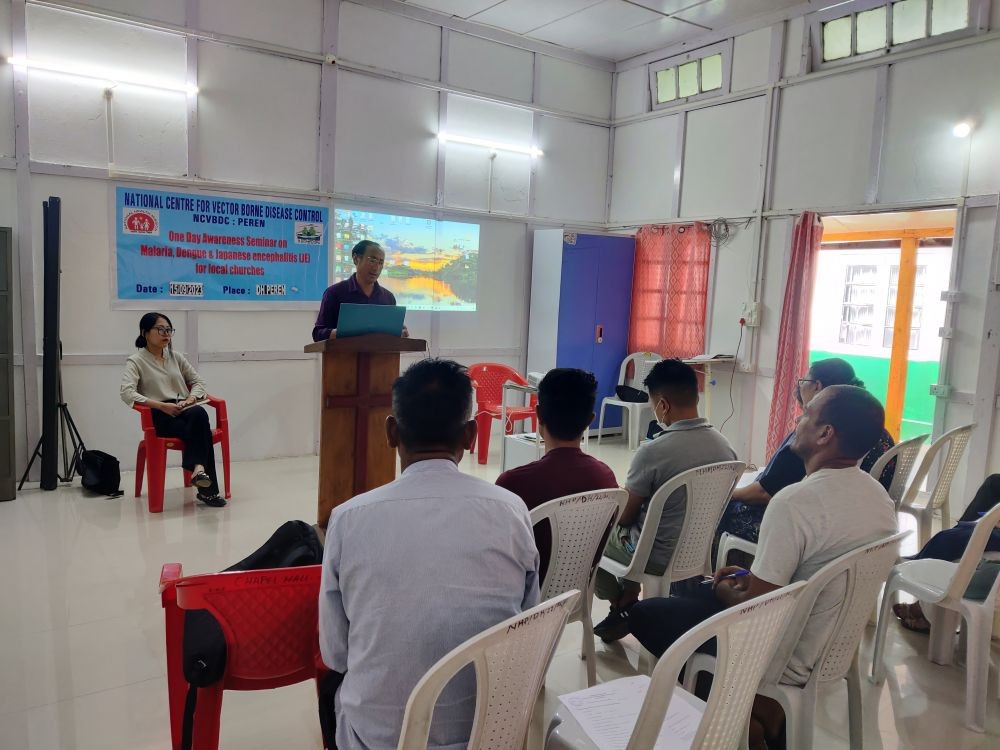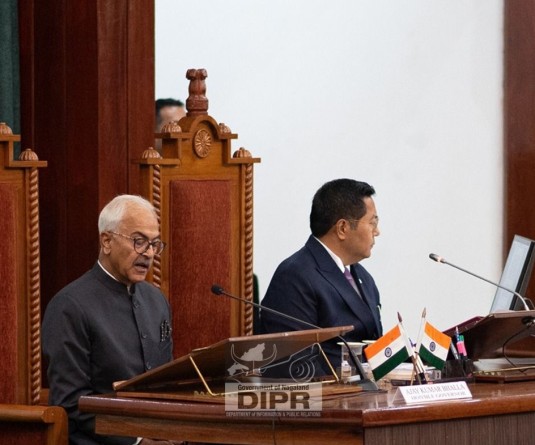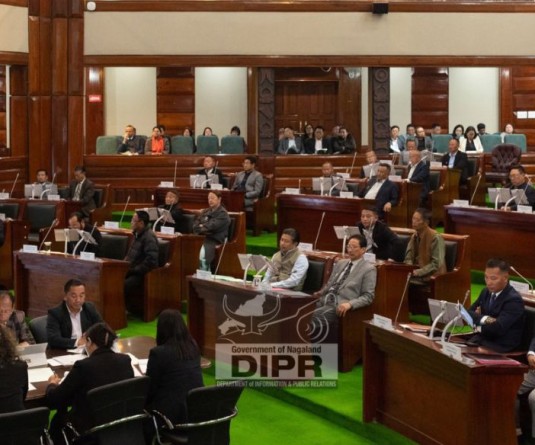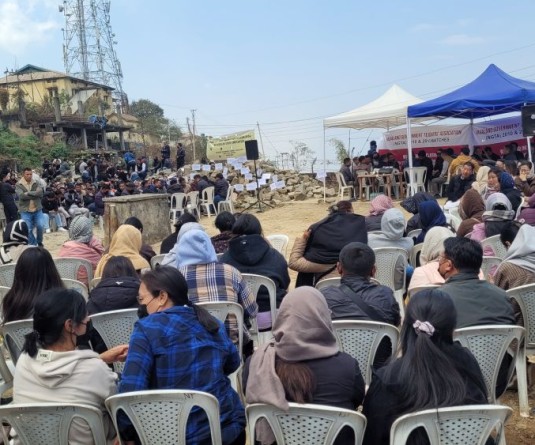Dr. Hedungkiebe, DVBO, delivering an awareness talk at the District Hospital in Peren during the awareness campaign.

Peren, September 16 (MExN): A recent survey in Peren district has pointed to the Japanese Encephalitis (JE) becoming endemic to the district.
As per a media release from the Chief Medical Officer of the district, on September 16, this was revealed during a blood sample survey of pigs from JE-affected families. The survey, conducted in collaboration with the College of Veterinary Science & Animal Husbandry, Jalukie, in August, 2023, a total of 7 samples collected were found to be antibody-positive against JE virus. Further investigation conducted outside the state confirmed the presence of the virus protein in three samples. This implies that the “JE virus is already endemic in the district,” the release from the CMO said.
In view of the JE detection and a rising incidence of dengue in the district, the Peren chapter of the National Center for Vector Borne Disease Control (NCVBDC) initiated a series of awareness campaigns. The district has already reported 4 JE and 3 Dengue confirmed cases, besides many symptomatic cases.
The NCVBDC campaign focused on sensitising the public on vector-borne diseases affecting the communities and preventive measures, including wearing long-sleeves shirt and pants while working, using mosquito repellents and bed nets not only at home but also during fieldwork, and, importantly, reducing larvae sources by emptying stagnant water collection pockets (such as empty cans, tires, bottles, etc) and cleaning areas where mosquito populations can thrive.
“Prevention is the only and most important step, as there are currently no specific medicines or vaccines available to cure these diseases and prevent severe illnesses,” it said. It highlighted what it said was an unresponsive attitude of the public when it comes to matters of the medical department, without realizing the crucial role of healthcare services in the overall development of the area. It added, “Diseases or epidemics are not brought about by the government, and the public cannot expect government agents to do everything to control disease outbreaks. Instead, the public must play a proactive role in preventing public health issues as responsible stakeholders.”
The campaign also stressed the importance of malaria elimination, the role and responsibilities of the public and sought public cooperation for the successful implementation of programme activities in the district.
It added that Information, Education, and Communication (IEC) and Behavior Change Communication (BCC) activities were conducted at various locations. Mass awareness campaigns were carried out in Ngwalwa town and Gaili village, as well as in the main town area of St. Xavier College, Jalukie. Seminars on vector-borne diseases were also held with leaders from five churches at the DVBO Office in Jalukie and with representatives from six churches at the District Hospital in Peren.






